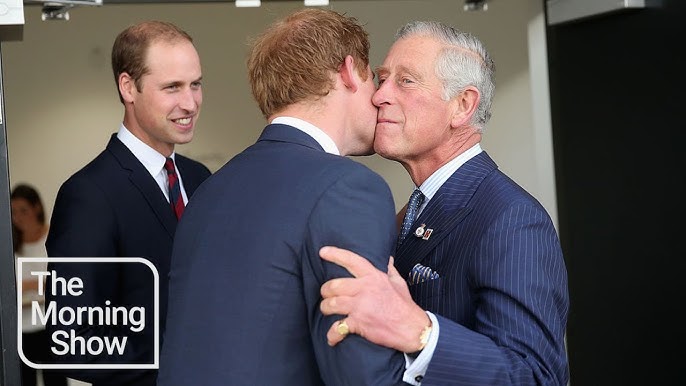In a surprising turn of events, Prince William has publicly mentioned his brother Harry for the first time in six years during a new documentary centered on homelessness.
This revelation has stirred up conversations among royal watchers and fans alike, as it highlights the ongoing rift between the two brothers.
With a history steeped in both camaraderie and conflict, this moment is significant and raises questions about the future of their relationship.
The documentary showcases William’s commitment to addressing homelessness, a cause that resonates deeply with his late mother, Princess Diana.
Unlike Harry, who has often made headlines for his ventures in Hollywood, William is focused on tangible change.
His approach reflects a dedication to service, reminiscent of Diana’s own charitable legacy.
The mention of Harry in this context is not merely a nostalgic nod; it suggests a deeper connection to their shared past.
Richard Kaye, a journalist with personal ties to Diana, interprets William’s mention of Harry as a deliberate gesture.
He sees it as an olive branch aimed at mending fences, but the implications are complex.
While some might view this as a step toward reconciliation, others caution against jumping to conclusions.
After all, the royal family’s dynamics are notoriously intricate, and any overture must be considered carefully.
Reflecting on their childhood, William recalled how Diana took him and Harry to The Passage, a homeless shelter.
This memory underscores the bond they once shared, a stark contrast to their current estrangement.
Once inseparable, the brothers have drifted apart, largely influenced by external factors that have shaped their paths in life.
The question remains: can they ever return to that closeness?
Many observers believe that Harry’s transformation into a Hollywood figure has altered his relationship with the royal family.
No longer the cheeky prince adored by the public, he now finds himself embroiled in controversies ranging from tell-all books to Netflix deals.
As William champions causes that matter, Harry appears to be caught up in a whirlwind of celebrity culture, raising eyebrows and concerns among royal loyalists.
Timing plays a crucial role in this narrative.
While William dedicates himself to meaningful work, Harry seems preoccupied with his new life in California.
Rupert Bell, a royal commentator, emphasizes that Harry cannot simply re-enter William’s life without acknowledging the past.
The weight of accusations and public scrutiny looms large, making any potential reconciliation a delicate affair.
From William’s perspective, the stakes are high.
He is not just a brother; he is the future king, responsible for the monarchy’s image and stability.
As he navigates the challenges of leadership, he must balance personal feelings with the demands of duty.
It’s a tightrope walk that few can master, but William appears to be rising to the occasion.
In contrast, Harry’s recent actions have raised questions about his understanding of family loyalty.
Public disagreements aired on international platforms have damaged the fabric of their relationship.
For many, family disputes should remain private, yet Harry’s choices suggest a different approach to conflict resolution.
This divergence in values adds another layer of complexity to their strained bond.
William’s parenting style also reflects his commitment to social issues, as he teaches his children about privilege and responsibility.
In doing so, he honors Diana’s legacy in a way that fosters understanding and compassion.
Meanwhile, Harry’s children, raised in a different environment, may not receive the same lessons about duty and community engagement.
The mention of Harry in the documentary signals William’s willingness to acknowledge their shared history while firmly focusing on the present.
However, it is essential to note that this does not equate to forgiveness.
As Rupert Bell articulates, true reconciliation requires accountability, something that remains elusive for Harry at this juncture.
The contrasting ways in which the brothers honor their mother’s memory reveal much about their individual paths.
William embodies a quiet strength, continuing Diana’s work through action rather than words.
Harry, on the other hand, often references her in interviews, perhaps as a means of justifying his choices.
It’s clear that their interpretations of legacy differ significantly.
As the royal family stands at this crossroads, the future remains uncertain.
William’s measured approach to family dynamics indicates he understands the importance of boundaries, even when extending an olive branch.
The next move lies with Harry, who must navigate the consequences of his actions if he wishes to rebuild bridges.
Ultimately, the royal saga continues to unfold, leaving fans and commentators alike eager to see how this chapter will play out.
The delicate interplay of familial love, duty, and personal ambition will undoubtedly shape the narrative moving forward.
The question lingers: can these two brothers find common ground, or are they destined to remain on divergent paths?
